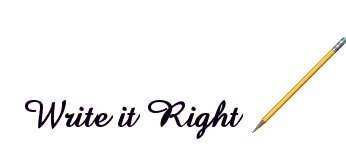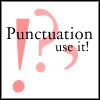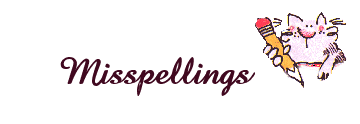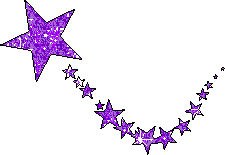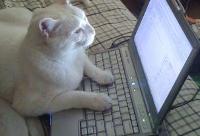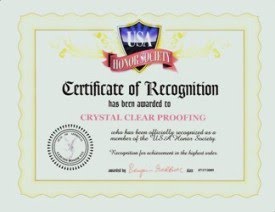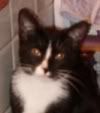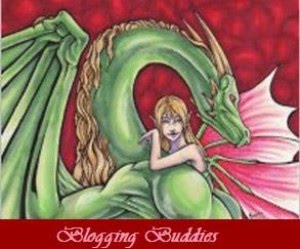
Homonyms are words that are spelled the same but have different meanings. Homonyms can also be words that sound the same when you pronounce them, but have different meanings. I know most of you know these words and their different meanings; it's just kind of fun to see them and realize how many homonyms there are in the English language. Here's a sampling (there are so many more!):
aid – to help or assist
aide – assistant
affect – change
effect – result or consequence
air – atmosphere (the stuff we breathe)
err – to make a mistake
aisle – walkway
I’ll – I will
isle – island
allowed – permitted
aloud – out loud
ant – picnic pest
aunt – relative, as in your mom’s sister
ate – chewed up and swallowed
eight – number after seven
bank – embankment
bank – place where money is kept
bare – uncovered
bear – grizzly animal
berry – fruit from a bush
bury – to put underground
base – bottom part
bass – deep or low
be – to exist
bee – buzzing insect
beach – sandy shore
beech – type of tree
beat – to pound
beet – type of edible plant
berth – tie up
birth – to be born
bite – nibble
byte – 8 bits (computer data)
blew – past of blow
blue – color of ocean
boar – pig
bore – not interesting
borough – area or district
burrow – dig through
burro – small donkey
bough – branch
bow – bend or curtsy
buoy – floater
boy – young man
brake – stop pedal
break – smash
bread – bakery food
bred – form of breed
broach – mention
brooch – pin
brows – eyebrows
browse – look around
buy – purchase
by – beside
bye – short for goodbye
cell – compartment
sell – vend
cent – penny coin
sent – did send
cereal – breakfast food
serial – sequential
Chile – country in South America
chili – bean stew
chilly – frosty
chord – musical tone
cord – rope
cite – quote
site – location
sight – view
complement – enhance; go together
compliment – praise
council – committee
counsel – guidance
creak – squeak
creek – stream of water
crews – gangs
cruise – ride on a boat
dear – darling
deer – woodland animal
dew – morning mist
do – operate
due – payable
die – cease to exist
dye – color
doe – female dear
dough – uncooked bread
dual – double
duel – battle
ewe – female sheep
you – second-person personal pronoun
eye – sight organ
I – me
fair – equal
fare – price
fairy – elf-like creature with wings
ferry – boat
faze – impact
phase – stage
feat – achievement
feet – plural of foot
fir – type of tree
fur – animal hair
flea – small biting insect
flee – run
flew – did fly
flu – illness
flour – powdery, ground up grain
flower – blooming plant
for – on behalf of
fore – front
four – one more than three
forth – onward
fourth – number four
knew – did know
new – not old
gorilla – big ape
guerrilla – warrior
groan – moan
grown – form of grow
hair – head covering
hare – rabbit-like animal
hall – passageway
haul – tow
hay – animal food
hey – interjection to get attention
heal – mend
heel – back of foot
hi – hello
high – up far
hoarse – croaky
horse – riding animal
hole – opening
whole – entire
holey – full of holes
holy – divine
wholly – entirely
hour – sixty minutes
our – belonging to us
knead – massage
need – desire
knight – feudal horseman
night – evening
knot – tied rope
not – negative
know – have knowledge
no – opposite of yes
lead – metal
led – was the leader
lessen – make smaller
lesson – class
loan – lend
lone – solitary
made – did make
maid – servant
mail – postage
male – opposite of female
marry – to wed
merry – very happy
meat – animal protein
meet – encounter
none – not any
nun – woman who takes special vows
oar – boat paddle
or – otherwise
ore – mineral
oh – expression of surprise or awe
owe – be obligated
one – single
won – did win
overdo – do too much
overdue – past due date
pail – bucket
pale – not bright
pain – hurt
pane – window glass
peace – calm
piece – segment
peak – highest point
peek – glance
plain – ordinary
plane – flight machine or flat surface
pole – post
poll – survey
poor – not rich
pour – make flow
pray – implore God
prey – quarry
principal – most important
principle – belief
rain – water from sky
rein – bridle
rap – tap
wrap – drape around
real – factual
reel – roll
right – correct; not left
write – scribble
ring – encircle
wring – squeeze
role – function
roll – rotate
rose – flower
rows – lines
sail – move by wind power
sale – bargain price
scene – landscape
seen – viewed
sea – ocean segment
see – observe with eyes
seam – joining edge
seem – appear
sew – connect with thread
so – as a result
sow – plant
soar – ascend
sore – hurt place
sole – single
soul – essence
some – a few
sum – amount
steal – swipe
steel – alloy
tail – animal’s appendage
tale – story
their – belonging to them
there – at that place
they’re – they are
to – toward
too – also
toe – foot appendage
tow – pull along
vary – differ
very – much
wail – howl
whale – huge swimming mammal
waist – area below ribs
waste – squander
wait – kill time
weight – measurable load
war – battle
wore – did wear
warn – caution
worn – used
way – path
weigh – measure mass
we – us
wee – tiny
weak – not strong
week – period of seven days
weather – climate
whether – if
which – that
witch – sorcerer
your – belonging to you
you’re – you are



